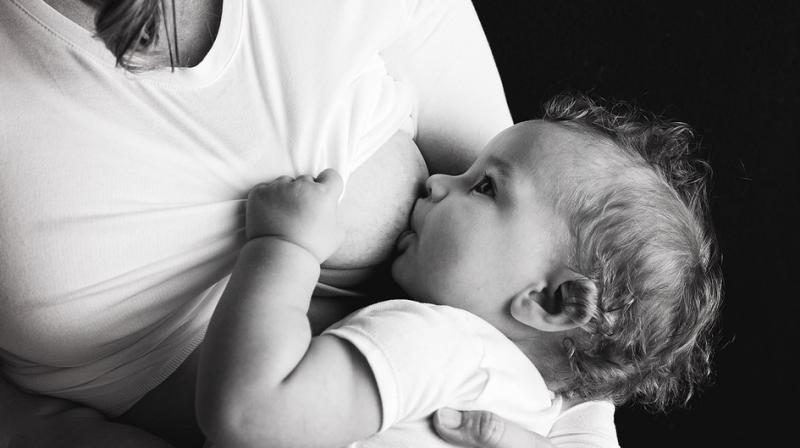World Breastfeeding Week: Here's why exclusive, on-demand feeding is important
Women, employed in any capacity are unable to breastfeed infants for recommended minimum amount of time leading to health complications.

According to the WHO and UNICEF, the theme for this year’s World Breastfeeding Week is ‘Women and work – Let’s make it work”. The reason for focusing on working women is manifest – women who are employed in any capacity are unable to breastfeed their infants for the recommended minimum amount of time leading to a number of health complications, including a higher mortality.
A lot has been spoken in volumes regarding the advantages of breastfeeding. However, through an interesting lens and thrusting beyond boundaries, Dr Vaibhav Kumar (Dental Public Health Specialist and Faculty, Department of PHD, Terna Dental College, Navi Mumbai) and Dr Anirban Chatterjee (Surveillance Medical Officer at World Health Organization- South East Asia Region) talk about the probable yet vital lesser known ground realities.
In India, the scenario gets complicated by the huge number of women from the lower rungs of the socio-economic strata who are employed in the unorganized sector. Given that breast milk has been associated with a host of outcomes such as higher IQ, lesser allergies, and better health and weight gain, it becomes all the more imperative to ensure that women are able to breastfeed their infants as and when needed.
Exclusive breastfeeding is highly recommended for the first 6 months of the infant’s life. The breast milk is in itself nutritious and filling enough to take care of all the needs of the infant. A mother’s body is so adapted to the needs of her baby, that in case she had a premature delivery, the breast milk produced by her would be tailor-made to suit the needs of the baby. Having said that, it should be kept in mind that an infant’s stomach is very small, due to which it will regularly demand to be fed. Channelised and tick marked breastfeeding schedule leads to health benefits that have been adopted by the WHO- ranging from a 500 gm weight gain of the baby every month to regular passage of urine (atleast six times in 24 hours)
Which brings us to the most basic rule of breastfeeding: on-demand breastfeeding. That is, the mother must breastfeed the infant whenever the infant demands it. An average infant demands to be fed every 1.5 to 3 hours, making it around 8 to 12 times per day. As can very easily be surmised from this data, it is no small chore, which is why many working women choose to forsake it for the sake of their jobs and careers. Very important to note, it is possible for the nursing mother to feed the baby post her professional commitments too. Breast milk can be expressed by hand and is fit for consumption at a later time- upto 8 hours (if stored in room temperature) to 24 hours (refrigerated)
Dental Health Specific Pointers : Veiled Significance.
The process of breastfeeding is the nascent step towards the development of the oro-facial structures, and has potent dental implications. Although it has numerous and unparalleled health benefits, it is always recommended for the teeth/ gum pads of the child to be cleaned with a moist cotton gauze post breastfeeding. Parents are strongly urged not to give the baby pacifiers (which are often honey / sugar dipped) or baby-bottle feeding (Collectively termed as Non-Nutritive Sucking), as it causes aberrations in tooth formation and misalignment of teeth,, and also predisposes to a high rate of infection.
Commonly administered antibiotic medications that are specifically used to combat dental infection in nursing mothers (Amoxycillin and Metronidazole) are transferred in the breast milk. This milk, when consumed, may cause the child to suffer from diarrhea (loose stools). Hence, antibiotics should be used only when indicated and professionally prescribed by the dental/ medical practitioner.
It is a misguided fact that the nursing mother stops breastfeeding as soon as the first tooth appears in the oral cavity. A lot of children are born with either inherent teeth or those erupting very soon after birth (Natal/ Neonatal teeth). In such cases, these aberrant teeth should be extracted after thorough consultation of a dentist.
The Indian Trends:
In India, the Maternal Benefit (Amendment) Act ensures that women are entitled to paid maternity leaves of up to 26 leaves, in addition to a slew of other provisions including the convenience of working from home, and also of a creche in establishments with more than 50 employees. Elsewhere, in Canada the duration is 50 weeks and in Norway it is 44 weeks. Therefore, it has become easier for women in the workforce to ensure that their babies are not bereft of the nutrition that only breast milk can provide.
Having said that, the Maternal Benefit (Amendment) Act comes with a caveat – it is applied to women employed in the organised sector. For the women in the unorganised sector, there is currently no such relief.
The various health schemes which are at present enacted by the Ministry of Health and Family Welfare target the nursing mother who is also the home-maker. These schemes, though intended to generate community support for breastfeeding by the mother on-demand, does not provide for concrete steps to ensure that women who are not home makers and yet do not fall within the ambit of the MB (A) Act are able to do the very same thing. There is a need to consider these women as a part of the target demographic while designing schemes which promote breastfeeding.
In a country where 13per cent of child deaths can be attributed to poor breastfeeding practices, it is the need of the hour to identify the barriers which inhibit good breastfeeding practices, and to address the same. Only then will we be able to ensure a healthier future for our children.

